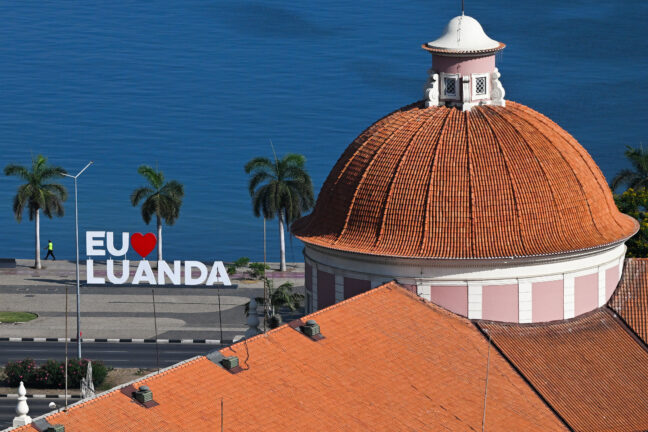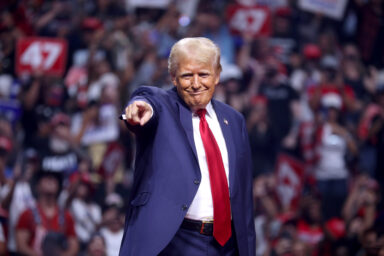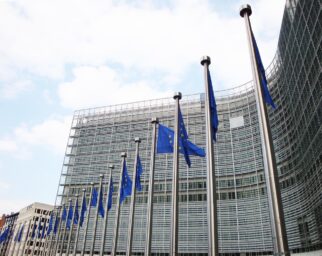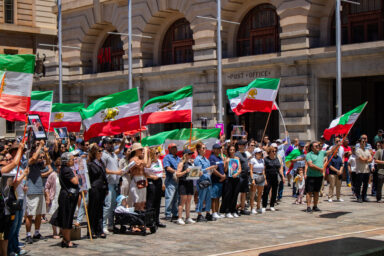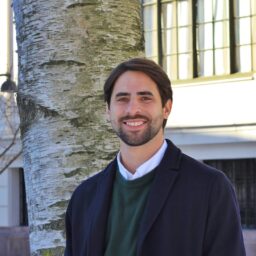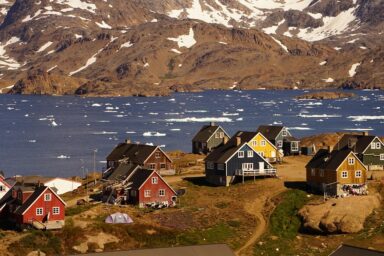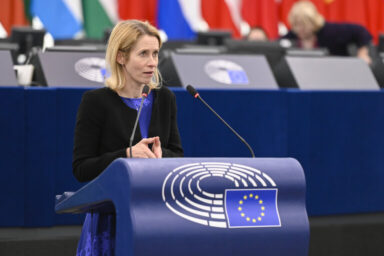Handshakes flashed and anthems blared. In Luanda’s sticky heat, Europe and Africa vowed—once again—to swap spectres of colonial past for cash, jobs and joint security. Europeans promised migration corridors, vaccines and “added value fixed in Africa”. Now it is time to deliver.
The seventh European Union–African Union summit closed in Luanda on November 25th with a measured show of harmony. António Costa, president of the European Council, hailed “twenty-five years of a strategic partnership” and insisted that “there is trust and, based on this same trust, we consider there to be guarantees of success of this cooperation between the two continents.” João Lourenço, president of Angola, the host country, offered similar warmth, calling the gathering “a signal that instead of confrontation, we have preferred to go for partnership.”
During a press conference following the summit’s conclusion, African journalists pressed the two leaders on suspicions of neo-colonial motives. Mr Costa replied that Europe’s firms are already Africa’s biggest investors and that future projects would leave value on the continent. “The jobs that are created should be created and settled here in Africa,” he said, stressing that the EU’s Global Gateway funds—now amounting to over €250bn—will focus on “vocational training” and “critical areas such as vaccines.” The impending African Continental Free-Trade Area, he added, “will boost this development.”
Mr Lourenço backed the pitch. “Only partnership can help our countries to develop and also to provide better conditions for our peoples,” he said. The lesson of the summit, he concluded, is the “value that we attach to the partnership between the different blocs.”
You might be interested
Shared rules, shared theatres
Economic talk stayed broad. Mr Costa sees infrastructure corridors, vocational colleges and vaccine plants as proof that Europe’s money can do more than extract raw materials. “We are convinced that the establishment of the African Continental Free Trade Area… will be essential,” he argued. Mr Lourenço nodded to jobs and technology transfers rather than ore and oil. Neither leader announced new cash, but both promised momentum.
Words do not lay railways or calm front lines. Yet Luanda’s carefully choreographed press conference suggested that, for now, Brussels and African capitals still believe in working the partnership they have, rather than starting another argument over the one they fear.
AU-EU Business Forum, which he said “built new bridges between entrepreneurs, investors, and policymakers. — Mahmoud Ali Youssef, African Union Commission chair
The two days of talks, therefore, ended with determined handshakes and lofty pledges. The summit wrapped with leaders trumpeting a joint mission to defend multilateralism and spur shared growth. “We now stand at a decisive crossroads,” said Mahmoud Ali Youssef, chair of the African Union Commission. “The strength of our renewed partnership will be proven not by proclamations, but by action, by the concrete results that transform lives and renew hope.”
The debt bogeyman
Mr Youssef praised the parallel AU-EU Business Forum, which he said “built new bridges between entrepreneurs, investors, and policymakers.” Such bridges, he argued, must rest on “fairness, reciprocity, and mutual respect. Let optimism shape our pathway forward,” he declared.
Mr Costa followed in the same vein. Prosperity, he argued, demands vigour. The European Union is already Africa’s biggest trading partner—33 per cent of the continent’s commerce heads to Europe—and its largest investor. Yet that is not nearly enough. “It is essential to treat seriously the issue of debt, which takes away the development capacity of the African continent,” he said, recalling a 2025 aid-financing conference in Seville.
The jobs that are created should be created and settled here in Africa. — António Costa, European Council president
Still, the richest seam lies in people. “Africa is rich in natural resources,” he said, “but the greatest wealth, the greatest resource of the African continent is its human capital and its youth.” Roughly 800 million Africans will enter the labour market by 2050. Mr Costa called for more education spending and wider entrepreneurship programmes. Mobility, he added, must be legal and safe—so that talent stays by choice, not because borders trap it.
Heavier lifting ahead
Mr Lourenço closed the gathering with a similar appeal. “The deliberations issued by this summit reflect a deep collective vision,” he said. He judged multilateralism “our best hope for building a fairer, more balanced, peaceful and prosperous world.” Partnership, he insisted, “is not only based on a set of ideas, but above all on the basis of concrete actions.”
Looking ahead, he set the bar higher for the next meeting, due in Europe in 2028. By then, he hopes for breakthroughs in industrialisation, sustainable finance and digital innovation. “We will leave here deeply committed to the realisation of our decisions,” he said. He voiced confidence that shared effort “reinforces and improves mutual understanding and deepens our role in the concert of nations.”
Partners—“de igual para igual”, as Mr Costa put it—have five years to turn a joint vision into visible gains. The heavy lifting begins now, a job much tougher than summit speechifying and anthem recitals.
